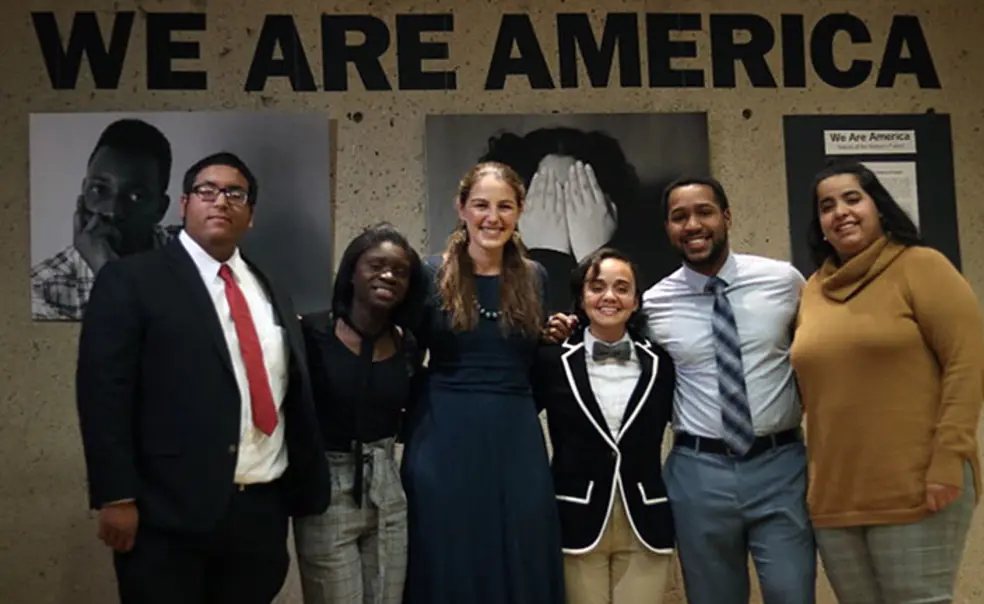Jessica Lander ’10 and Her Students Work To Redefine American Identity
Jessica Lander ’10 is an author, journalist, and education-policy advocate, with a special interest in immigrant education. Her most recent project is a team effort that she co-leads with 12 of her Lowell (Mass.) High School students.
It all began in August of 2018, when Lander asked her students in a seminar on American diversity if they would be interested in exploring their own stories in conversation with American history.
“History is personal,” Lander says. “I wanted my students to see that their story was equally important and essential to study if we wanted to understand the history of diversity and equity in this country.”
Following a semester of contemplating and writing their own stories of American identity, the students published their stories in a book, We Are America (and We Are America, Too the next semester). They also published them on a website under the same name, where they are distributed to the public for free.
Lander and her students quickly realized they had “struck a chord” with their project when it gained the attention of news outlets and institutions such as the Harvard University Graduate School of Education, where Lander received her master’s in education policy and management in 2015. They mapped out a plan to expand the project nationally, and 12 students have worked with Lander ever since as co-founders of the national We Are America project.
“This is not just me doing this work,” Lander says. “This is me and 12 incredible young people. We are all equal founders in this.”
Since founding the national project in the spring, 40 teachers in 25 states across the country have worked with Lander and her students to bring the We Are America curriculum to their classrooms.
Each classroom will publish its own book with stories of its students, as well as record their stories for the We Are America website where they will be publicly searchable and available.
“In listening to these stories, you might not have the same lived experience, but there’s likely something about the story that you connect with,” Lander says. “That builds empathy across difference, and I think that’s something that’s really needed today.”
Additionally, the project aims to help participating students explore their personal American identities.
“Our hope is that this is a place where young people can claim their American identity and be part of the national conversation to widen and deepen their idea of what it means to be American,” Lander says. “It’s important for young people to see themselves as American.”
The We Are America project was part of an exhibition at Harvard last month, and four of the student essays were also published in the opinion section of The Boston Globe in November.
Lander discovered her interest in education policy at Princeton, where she studied anthropology with a certificate in African studies. After graduating, she taught as a Princeton in Asia fellow in Thailand. Since then, Lander has continued to teach in the U.S. and in Cambodia, worked for President Barack Obama’s 2012 campaign, wrote two books, and completed her master’s.
She regularly contributes editorials about education policy, and in addition to her seminar on American diversity at Lowell High School, she teaches four sections of social studies as part of the English Language Learner program there. Lander’s classroom experience directly informs her writing on policy. “What I see in the classroom helps inspire the subjects I might write on, so they are very much connected to each other,” she says.
Currently, Lander is on a year-long sabbatical as an Emerson Collective Fellow. She is working on her third book, about the history of immigrant education, as part of the fellowship.
In the future, Lander hopes to return to teaching and continue advocating for immigrant communities. She always wants to work with young people.
“I can’t think of more important work to be doing,” she says.












No responses yet